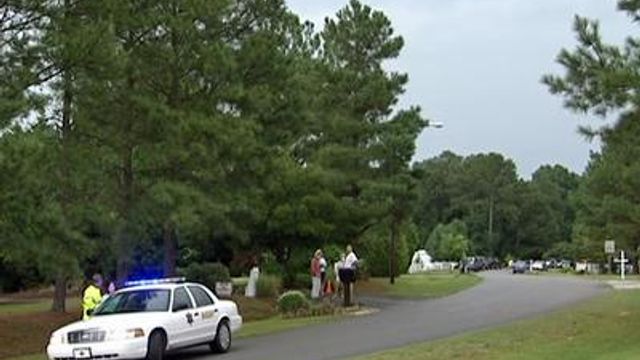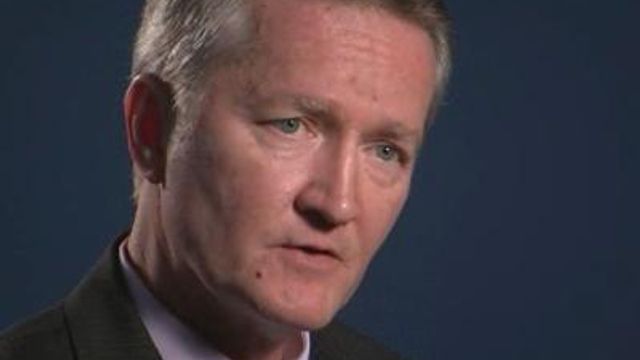Local News
Retired FBI agent: Terror suspects' arrests significant
Frank Perry, who headed the agency's Raleigh bureau until 2004, said there are dozens, if not hundreds, of suspected terrorist cases that do not lead to indictments.
Posted — UpdatedRALEIGH, N.C. — The case against eight Wake County men charged in an alleged terror plot overseas had to be significant if a federal grand jury chose to indict the suspects.
"Obviously, this is a case that was specific, credible, and as we read in the indictment, quite coherent in that it's prosecutable and appears to be going that route," retired FBI special agent Frank Perry said Tuesday.
Perry, a 22-year veteran of the FBI who headed the agency's Raleigh bureau for four years, until 2004, said there are dozens, if not hundreds, of similar cases nationwide that do not lead to indictments and do not make headlines.
"It's very difficult, because no one talks. It's not the sort of case where you have individuals who may be loyal to the American constitution," he said. "These individuals are motivated out of conscience to work against the government. Therefore, there is no propensity to help the government."
Authorities would not disclose how they learned of the alleged conspiracy that led to Monday's arrests, but a federal indictment indicated it had been under investigation for years.
According to the document, Daniel Patrick Boyd and seven other men, including his two sons, worked to provide resources to terrorists and planned acts of violence overseas over the last three years.
Seven suspects were arrested Monday; an eighth man is still being sought.
Terrorism links not new to N.C.
The case is not the first with North Carolina ties to make headlines.
Steve Emerson, author of "American Jihad," and one of the foremost experts on terrorism, has called the state a "hot bed" for terrorist activity.
Harvey Kushner, who wrote "Holy War on the Home Front: The Secret Islamic Terror Network in the United States," cites three cases that helped build a network of Islamic extremism in the U.S.
In a large-scale cigarette-trafficking case, a federal jury in Charlotte convicted Mohamad Hammoud and his brother in 2002 of supporting Hezbollah. Hammoud, who laundered nearly $8 million from cigarette sales, is serving a 155-year prison sentence.
Khalid Shaikh Mohammed, the man the 9/11 Commission Report called "the principal architect" of the Sept. 11, 2001, attacks on the United States, attended North Carolina A&T University in Greensboro in the 1980s, along with another terrorism suspect, who has since been deported.
That suspect is the brother-in-law of Sami Al-Arian, a former North Carolina State University professor, who in 2006, was sent to federal prison for supporting a group with ties to Hezbollah.
Al-Arian admitted to providing support to a U.S.-based terrorism group as part of a plea deal to avoid life in prison.
Documents later found at his home included an organizational plan for terrorism in the U.S. and a map with several cities highlighted, including Raleigh.
"North Carolina is not an unimportant place in this country," Perry said. "(There are) significant military bases here, many universities here which attract a wide range of people who come in for the purpose of study, and those universities attract people from across the country and the world."
The emphasis on investigating terrorism tips in North Carolina, he said is a direct result of information gathered after the Sept. 11 attacks. He could not elaborate but said some working with 9/11 hijackers had looked at other potential targets in North Carolina and Virginia.
"Immediately after 9/11, the U.S. intelligence community learned there were some pre-9/11 preparations going on here – not so much the planning, but logistical support we learned about," he said. "So there is some precedent for this sort of case here in the Triangle."
It is also because of those attacks, Perry added, that more cases of suspected terrorism are being investigated than before. Prior to Sept. 11, he said, counterterrorism was not a major priority for the FBI.
"Counterterrorism was always up there, but it's now No. 1, and everything else is simply beneath it," he said.
• Credits
Copyright 2024 by Capitol Broadcasting Company. All rights reserved. This material may not be published, broadcast, rewritten or redistributed.






